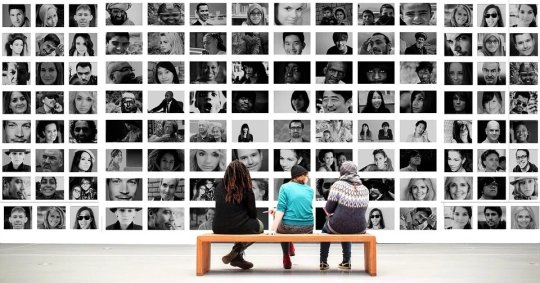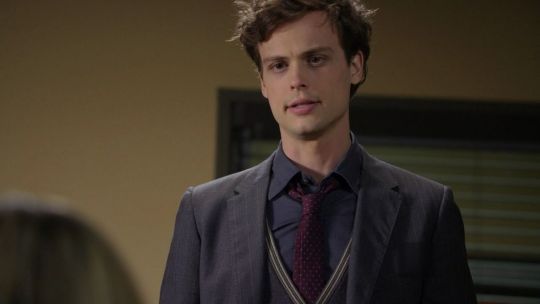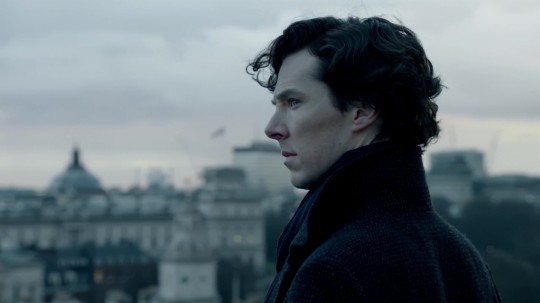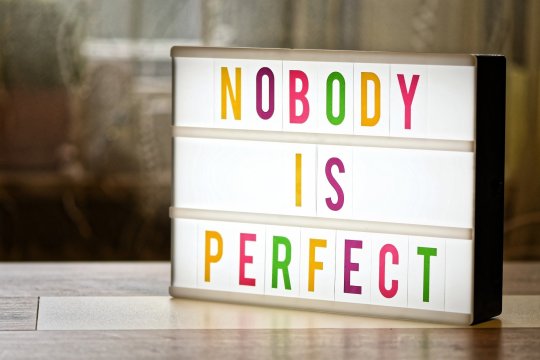#I know he's simply fae changeling coded but it's still relatable
Explore tagged Tumblr posts
Text
I've been thinking after a conversation with @guraiuna how everyone describes Childe as unpredictable.
And... yes, technically he is unpredictable. In the sense that human mind cannot conceive the shit this guy comes up with.
But also in every single interaction he *explains* what to expect of him. He states his goals, in which capacity he is currently here (personal/professional) and what he is going to do about that.
Even when you are a complete stranger and an enemy he is currently trying to trick, he still does it, just in the form of a hint.
He does it in the Golden House before the duel and before summoning Osial, he does it in Labyrinth Warriors, he does it with the treasure hoarders in Liyue and those thugs who threatened the blacksmith in Fontaine. He does it with Neuvilette (who then proceeds to assume the boy is just making fun of the court).
I wonder if it's because he views everything as a game or a duel and it makes sense to let the opponent know the rules. It's not fun to cheat (he's also confident in his ability to win).
He is extremely straightforward if you listen to him. I rarely see people who announce boundaries and intentions this clearly.
Does anyone ever take that seriously? N o p e. And somehow he's the crazy and unpredictable one. I can't with you all.
(to be honest, I do that too. I've spent so much time thinking the first encounter in Fontaine was a trick of some sort)
The 52hz whale theme is strong.
#I actually understand why some people say he's autistic coded#that's a common autistic experience#I know he's simply fae changeling coded but it's still relatable#childe#tartaglia#genshin impact#52hz whale
160 notes
·
View notes
Text
The Silver Screen Savant, pt 2- the Meh, the Bad and The yikes.
Hello Writers!
Last time here on Starry Starry Write, I talked a little about Autism in the media and my personal experiences therein. Today, I’d like to go a little broader, and tackle the topic from a macro perspective.
In recent times, you’ve probably heard “Representation Matters” oft repeated. Especially in prominent talking spaces like social media. But what does that mean, exactly?
Why “Representation Matters,” and how.
The short answer:

Diverse representation in media tells us that everyone has a place in the world. That everyone’s story matters.
The long answer:
It’s no secret that we begin engaging with media at a young age. When I was growing up in the 90’s and 00’s, TV and video games were often the babysitters of my peers. I was one of the few kids in my neighborhood whose parents weren’t divorced. The kids I knew? Not so much. Most of them were raised by single parents, grandparents and of course-the boob tube. I personally prefered books, when my mom wasn’t yelling “it’s too nice out to be holed up in that dark bedroom!”
Now, don’t mistake my preference for some kind of intellectual superiority. I watched plenty of TV too. Besides, books aren’t magically out of the equation. Printed material is our oldest form of media. And- often just as problematic. Though I will say- I saw a much broader range of people on covers adoring library shelves than I ever did titles on a TV roster. But, I digress. The point is: for many of us, consuming media begins at an early time of our life. And that’s where the problem starts. Even in my childhood, where The Magic School Bus, Hey Arnold, and Sesame Street showed people of all kinds, I can point to many that did not. Especially not people like me. Which did me a grave disservice. I didn’t know I was on the spectrum for a long time, and when I finally found out, I was horrified, thanks to what I had seen on TV.
Because media is not only a wonderful way to learn about people that don’t look, act or sound like us. It also informs our ideas of who we are, and what we can be. Whether we like it or not: it shapes how we understand the world. And it doesn’t stop with Childhood.
Time Changes Much, but not all.

Things are better now. Well, a little bit, anyway.
As an adult, I see more people like me on the screen nowadays. Which is nice.
Ish.
Why “ish?” Well…
Frequently, these “noticeably different” characters (read: Autistically coded) are branded “NOT AUTISTIC!” You heard it here first, folks! That one character (insert your favorite) is Totally Not Autistic. Despite being written in a way that gives every indication otherwise.
*Facepalm*
Now for some examples, which we’ll call the “Meh,” “The Bad” and the “Yikes.” For “fun,” we’ll also go into the off-air perceptions of the characters.
The “Meh.”

First on the list is Dr. Spencer Reid, from CBS’s “Criminal Minds.”
Dr. Reid is the youngest member of the FBI’s Behavioral Analysis Unit, having joined at the age of 22. He holds three B.A degrees in Sociology, Psychology and Philosophy, as well as three Ph.D’s in Engineering, Chemistry, and Mathematics.
He also has the social skills of a limp dishrag. Wait, what’s that? High Intelligence + Low Social Awareness? Hmmm…Then there’s his restrictive behavioral patterns, obsessive interests, and general “quirkiness!” that we could talk about. But let’s hear a quote from the actor who plays him, Matthew Gray Gubler:
“..an eccentric genius, with hints of schizophrenia and minor autism, Asperger’s Syndrome. Reid is 24, 25 years old with three PH.D.s and one can’t usually achieve that without some form of autism.”
Hoooo-boy. I could go into all the things wrong with this, including why the term “Asperger’s” is both horrific (TW: Eugenics,Ableism, N*zis) and harmful. However, today we’ll simply leave it with the fact that this term is no longer applicable, having been reclassified in 2013 as part of Autism Spectrum disorder.
The “Bad.”

Next up, we have Will Graham, from NBC’s Hannibal.
Like our first example, Will works for the FBI. He’s a gifted criminal profiler with “special” abilities, namely hyper empathy, which allows him to reconstruct the actions and fantasies of the killers he hunts. He’s intellectually gifted, hates eye contact, socializing, and prefers to spend…most of his time…alone.
Oh dear. Haven’t we been here before? But, I mean, he doesn’t have Autism! The show runner says so!
For Will Graham, there’s a line in the pilot about him being on the spectrum of autism or Asperger’s, and he’s neither of those things. He actually has an empathy disorder where he feels way too much and that’s relatable in some way. There’s something about people who connect more to animals than they do to other people because it’s too intense for whatever reason.
You can’t see me right now, but I’m cringing. A lot. This is just…ugh. I mean, for starters, I know a handful of autistic people who struggle with hyper empathy, which can make social situations overwhelming and hard to navigate. In fact, I happen to be one of them. Plus, there’s a cool little thing about how, frequently, people on the spectrum more readily identify with animals. But, y’know. Who am I to say? I’m just someone, one of many, who’s dealt with this my whole life.
Now, onto the “Yikes.”

*sigh*
And finally, we have BBC’s Sherlock, a modern adaptation of Sir Arthur Conan Doyle’s renowned “consulting” detective, and probably the most famous fictional character of all time.
Now, I’ll start by saying that the BBC incarnation is not the first to be Spectrum labeled. In fact, Sherlock was my childhood hero, and the first “person” I saw referred to this way. My aunt, an avid reader herself, casually remarked to a friend “I’ve always wondered if Holmes is Autistic,” after I came yammering on about how fantastic the books were. Had I not been champing at the bit to get back to my reading, I might have asked her what that meant.
I also believe this fandom driven speculation is why many detective type characters (see above) are often coded as Autistic, intentionally or otherwise.
In this New York Times article, Lisa Sanders, M.D. describes Holmes traits:
He appears oblivious to the rhythms and courtesies of normal social intercourse — he doesn’t converse so much as lecture. His interests and knowledge are deep but narrow. He is strangely “coldblooded,” and perhaps as a consequence, he is also alone in the world.
Now, before we go any father, let me take a moment to defend his creator. During the time Sir Arthur Conan Doyle first created his most famous work, Autism was not known. That isn’t to say it didn’t exist. We’ve always existed. In fact, it’s now believed that the Changeling Myth, a common European folk story, was a way to explain Autism. In one telling (there are a few) children displaying “intelligence beyond their years” and “uncanny knowledge” were imposters, traded out by Fae creatures for offspring of their own. Children believed to be “Changlings,” regretfully, often came to a bad end. A chilling reminder that the stories we tell impact our real lives.
So while Autism was at least somewhat recognized, it did not become its own official diagnosis until 1943.
Meanwhile, Sherlock Holmes was first published in 1892. Now, as a writer who often draws from my personal reality, I imagine Doyle probably “wrote what he knew,” which is to say, acquainted with one or more Autistic people, he used them as inspiration.
On the other hand…
BBC’s Sherlock first aired in 2010. And while one might argue that the writers simply capitalized on the Autistic fan-theory, or took already available traits and exaggerated them for their version… they left a lot to be desired. Autism aside, this new Sherlock is…well…an asshole. Narcissistic, abusive and egocentric (to name a few) he sweeps his caustic behavior under the rug of “high functioning sociopath,” and blytly ignores the consequences.
Which is a major problem. Because while doing this, he’s still “obviously” (at least in the Hollywood sense) Autistic. In my previous post, where I said some characters are “too smart™, and logical© to ever have feelings, friends or empathy,” this is what I meant.
This is bad. We’re looping right back to Representation Matters. Bad representation, and the navigating of such, is just as important for writers to think about as good representation. Maybe even moreso. Because bad representation paints real people into cardboard, stereotyped people-shaped things. It otherizes. And it’s harmful. You would not believe the people I’ve met assume I’m not Autistic because I’m not an egotistical jerk. Why? Because they watched, you guessed it, BBC Sherlock.
Confession time:

Now here’s my little secret:
I love all of these characters. They are some of my favorite on tv. Why? Because for good or ill, I recognize myself in them. Finally, I can turn on the TV, and see myself. Or, somewhat, anyway.
My favorite character out of this list? Loath though I am to admit it… Is Sherlock. See, what those well meaning folks didn’t know (the ones who say I’m I’m “too nice,” to be Autistic) is… well, if we’re being honest, I wasn’t always nice. A few years ago, I was that guy. I was a jerk because I thought I was the smartest person in the room. Which is really not a good look. In fact, sitting down and watching the first season of sherlock, (around three or four years after it came out) made me realize how much of a jerk I actually was.
There are other things there too. Things that tie me to all these characters, that I didn’t list. But that’s for another today.
For now, I’d like to add a caveat or two:
1) I’ve watched all the shows listed above, and adore them. As I mentioned, Sherlock is my favorite. He’s also the one I’ve watched the most (Repeatedly, in fact. Whoops.) and I recognize it’s not all bad. In the end, he learned to treat people better (somewhat) and certainly became more human over time. And, there are other deeply problematic elements of the show I’d like to tackle, eventually.
*cough* Queerbating! *cough*
2) I’m well aware that the above cases are all thin, white, able bodied, “straight” males. But I chose these characters for a couple of reasons. One, they’re the most prominent type on TV. Again, we loop back around to representation, and why we need more positive, diverse examples of it.
And finally-
3) In my last post, I mentioned I’d give some “good” instances of Hollywood Autism trope. But I didn’t exactly do that. Partially, because half way through, I thought…perhaps…I’m not the best to judge what might be a good Autistic character. I mean, I’m sure someone will read this and think my current aforementioned characters are fine. Heck! They might even argue my perception here, and say the characters are just fine. I accept that. In my life, both on and off the page, I recognize that I cannot, should not (and don’t want to) speak for an entire community.
Because of this, I cannot tell you how to write a “good” Autistic character, or what media is “acceptable.” I can’t even really tell you what a bad character is. Sure, I have a lot of opinions about it. But- if you’re on the spectrum and like and identify with the above? That’s fine. I mean, even with all the problems I noted (and some I didn’t) I certainly do.
On the other hand, if you’re a writer, and you want to write a character from this (or any, for that matter) community you aren’t part of, I caution you.
Do your research. Preferably from multiple credible sources.
Talk to people on the spectrum about what it’s really like. (Though try to steer clear of asking for emotional labor.You could, say, hop on reddit and ask the community there, for instance, which is a no pressure way to obtain potentially decent info.)
Finally, whatever you do, remember this-
Autistic people can look like anyone. We can act, and think and be different, like anyone. We are real, living, breathing people. Not robots, not sob stories, not tropes. People. So if you write about us, write us like people. And your work will be all the better for it.
-Your Loving Vincent
#autism#autistic problems#actually autistic#autistic experiences#autistic life#media#hollywood#film#TV#television#will graham#nbc hannibal#hannibal#sherlock#bbc sherlock#criminal minds#arthur conan doyle#writers on tumblr#writing#writers#tropes#spencer reid#autism in media#representation matters#autistic representation#liturature#own voices#do your research#emotional labor#caution
7 notes
·
View notes